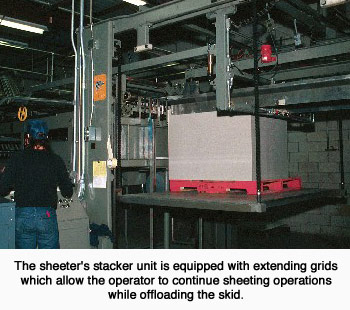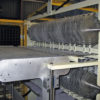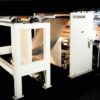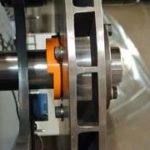By meeting customer requirements through quality assurance and increased operating efficiency, Telfer Packaging, a Toronto company, has become a leading supplier of sheet-fed, offset folding cartons for the detergent industry.
Due to a recent expansion and by investing in state-of-the-art equipment and setting up a sheeting operation in-house, the company can now supply manufacturers with high quality paperboard products at a competitive price, Telfer’s customer base has expanded and sales have increased 35% over the past three years.
“We are a different company, in terms of capabilities, from what we were three years ago before we expanded,” says president Ken Clements. “We couldn’t compete against other converts who were producing higher quality products at lower costs, until we significantly updated pour operation.”
According to Clements, developing a quality assurance program has helped boost the company’s image as a supplier of high quality folding cartons. “We used to believe in quality control, which meant catching mistakes after they had been made,” he says. “With our current program, we now look for defective material at the beginning of each production stage.”

Quality inspectors check board as it arrives from the mills to ensure it meets the proper specifications. “In the case of a detergent carton, we need stiffness and the proper caliper of board,” Clements comments. “We look for these qualities before the board is sheeted or printed so we can reduce labor costs and waste.”
Telfer’s commitment to providing its customers with the highest quality products led the company to set up an in-house sheeting operation. While Telfer had been purchasing its sheeted stock from U.S. suppliers at a lower cost than from Canadian mills, it was still paying to have its board custom-sheeted.
“By sheeting our own board, we felt we could increase the quality of the cut board and reduce our overall costs,” Clements states. “Temperature and humidity variations in our plant may cause lower caliper, custom-sheeted board to distort, which leads to problems at the press. In-house sheeting has allowed us to decrease waste levels and increase profits.”
Telfer investigated several sheeter models, and chose an MSH precision sheeter from Maxson Automatic Machinery Company, and two self-loading shaftless back stands to reduce set-up time. According to Clements, the sheeter has met the company’s standards for clean, square sheets.
“One concern in the offset folding carton industry is the ability to produce a neatly printed product. Hickeys can be a major problems since they cause printing flaws and results in a poor-looking carton,” he said.
Clements notes that an accumulation of dust on pre-printed board is the major cause of hickeys. To ensure the cleanest sheeted board. Telfer had a PEN MAM dust collector installed on its sheeter as an optional component. It vacuums dust generated by the cutting and slitting of the sheet at the delivery tape section.
The opposing top and bottom suction headers cause the delivery tapes to vibrate, further eliminating dust from the tapes.
After the delivery tape section, sheets are directed to the stacker. The true test of a good sheeting job becomes obvious here, because, if sheet length tolerances are off, then the board may not meet specification for a particular product, Clements says.
“The Maxson sheeter delivers a press-ready skid and maintains sheet length accuracy +/-0.023 in. at all times,” he reports. Telfer converts recycled and solid bleached sulphate (SBS) board at caliper grades from 12 to 30 points. Telfer is now able to sheet board at speeds of up to 1000 fpm. An extending grid system allows the operator to sheet board continually while offloading the stacker, saving valuable production time and increasing overall output. The company currently produces one million sheets per month, operating 10 hours a day.
Telfer also boosted productivity by purchasing two new Miehle-Roland presses. To further increase productivity and reduce problems associated with off-line coating. Telfer decided to install a coater/perfector on one of its new 63-in. presses. The press allows Telfer to print up to six colors, apply a high-quality aqueous coating and perfect print register. The “one-pass” perfecting option offers packaged goods manufactures a fast , cost-efficient way to obtain two sided printing on most cartons. In addition, Clements notes, aqueous coating provides a clean gloss, heavy spray powders and helps avoid off-line coating problems.
The installation of a pre-feed unit and case packer on a high speed gluer has also increased output of the finished product. Detergent cartons can now be glued at a rate of 28,000 per hour – double the capacity before upgrade.
To ensure constant operating efficiency, Telfer also introduced a just-in-time policy. Quality assurance along every step of the sheeting, printing, die cutting and gluing operations is key to keeping waste levels minimal and quality levels high, notes Clements. “Quality assurance has enabled us to offer our customer a quality economical product,” he says.
“Our goal with a just-in-time policy has been to decrease turnaround delivery time,” he concludes. “And with the new printer and sheeter, we’ve been able to do this. As a result, we have formed a more healthy relationship with our customers.”
Reprinted from Pulp & Paper Canada, August 1987






